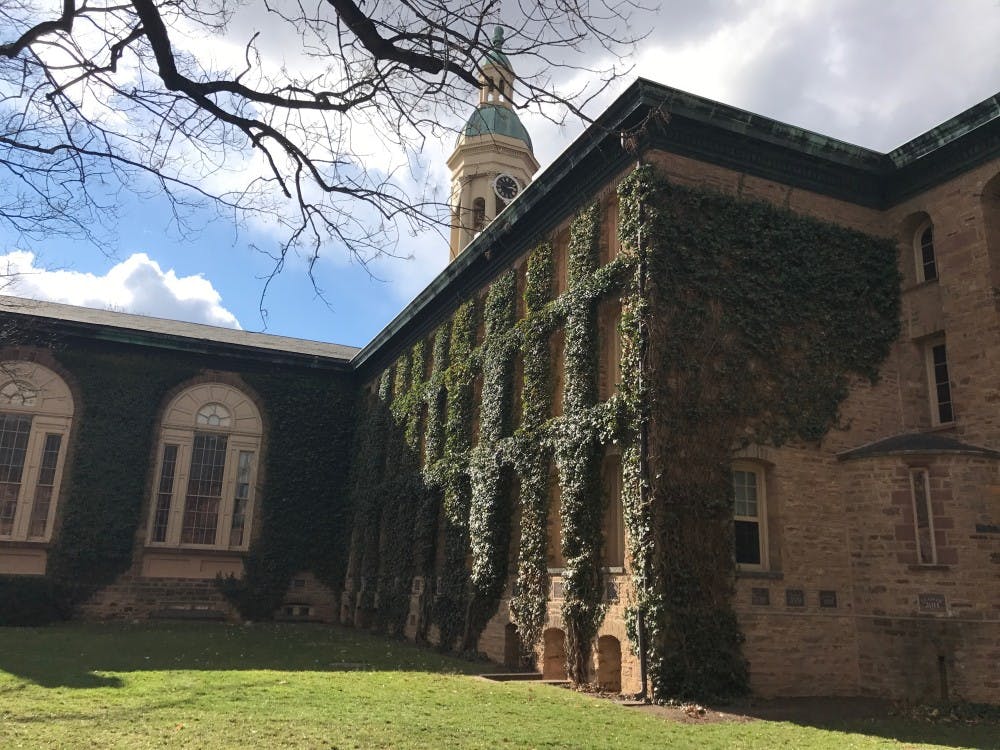On March 17, the University filed a lawsuit against the Department of Education in the U.S. District Court for the District of Columbia. The lawsuit seeks to block the release of confidential documents relating to the University’s undergraduate admissions program.
The confidential material falls into two categories, denoted “Applicant Documents and Information” and “Admissions Documents and Information” by the lawsuit. According to the formal complaint filed on Friday, these documents entail personal information about applicants and the University’s “strategies and methods” to recruit and admit students.
The lawsuit lies at the heart of a greater controversy that began in 2008 surrounding the University’s use of affirmative action.
After being denied admission to Princeton’s Class of 2010, Jian Li, now a graduate of Yale University, filed a civil rights complaint against Princeton. He argued that the University’s admissions policies violated Title VI of the Civil Rights Act of 1964, which “prohibits discrimination on the basis of race, color, and national origin.”
When the Office of Civil Rights, a sub-agency of the DOE, launched an investigation, the University disclosed the aforementioned documents in cooperation with the compliance review.
On Sept. 9, 2015 in a letter to University President Christopher Eisgruber '83, the OCR concluded that “there was insufficient evidence to substantiate that the University violated Title VI.” This led the anti-affirmative action group Students for Fair Admissions to request and eventually file a lawsuit, Students for Fair Admissions Inc. v. U.S. Department of Education, seeking disclosure of the aforementioned documents.
The University argued that these materials are exempt under the Freedom of Information Act, but the DOE’s rejection of these claims prompted the University to sue.
Daniel Day, Assistant Vice President for Communications at the University, wrote in an email that the University filed the lawsuit last week “to honor the promise of confidentiality we make to all applicants and their families."
“This is important prospectively as well as retrospectively, so future applicants will be willing to provide materials to us knowing the confidentiality of their materials will be respected, and so previous applicants will have their personal information and materials protected,” his emailed statement said.
Day added that the lawsuit was necessary “so as not to make the University's internal admission policies, processes and criteria available to peer institutions that may seek to use them to their competitive advantage.”
The official University complaint filed on behalf of the University by former U.S. Associate Attorney General Thomas Perrelli also explained that concerns about confidentiality if the structure and proceedings of the admissions process were to be released would put the University at a “substantial disadvantage” to enroll the most competitive students.
Release of the documents would also allow high-price admissions counselors to tailor their clients’ applications, thereby “harming [the University’s] ability evaluate those students and placing less affluent applicants at a competitive disadvantage," Day said, expressing the University's concern.

The Asian American Students Association released a statement concerning the lawsuit:
"The Asian American Students Association's (AASA) executive board recognizes the overall benefit of considering race in creating a diverse student body and stands by the University’s decision. The Department of Justice closed its investigation into alleged anti-Asian bias a year ago without finding any evidence of bias. AASA stands in solidarity with other people of color and continues to support race as part of a holistic process in college admissions."
In response to the University’s lawsuit against the DOE, Edward Blum, president of SFFA and a legal strategist known for his work in cases like Fisher v. Texas, an affirmative action case decided in 2013 and 2016 by the Supreme Court, expressed great skepticism about the University's reluctance to disclose information.
"This lawsuit suggests that Princeton has something very revealing it wants to hide about its admissions policies,” Blum wrote in an email.
“The Supreme Court has consistently written that colleges must be transparent in their admissions policies and procedures," Blum wrote. "By withholding that transparency, a program such as Princeton’s should be considered flawed and thus, unconstitutional."
Blum also deemed the University’s claim that the documents should be exempt as commercial information and trade secrets is “simply baseless.”
The Students for Fair Admissions website states that its mission is to “restore the original principles of our nation’s civil rights movement.”
Currently, the group is also involved in litigation against two of the University’s peer institutions, Harvard University and the University of North Carolina at Chapel Hill.








